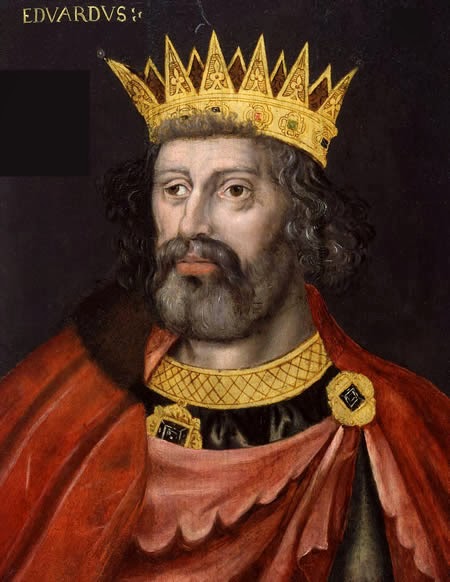 |
| Edward I |
The origins of the modern British parliament can be traced to the reign of two medieval English kings: Edward I (1239–1307) and Edward II (1284–1327). Parliament had its roots in the king’s Great Council, a primarily judicial and executive body in which prominent barons counseled the king and considered petitions for the redress of grievances. Although Parliament had legislative, judicial, and fiscal responsibilities, it was the fiscal duties, in the form of grants of taxation, that transformed it from a feudal council into a more representative body.
Prior to 1200 English kings drew most of their income from independent sources, such as land rents, judicial fines, and feudal aids. However by the ascension of Edward I in 1272, taxation provided most royal revenue. The wars of Edward I necessitated the frequent summoning of Parliament to approve the granting of taxes.
However, taxation required the consent of Parliament, which became less forthcoming as the costs of Edward’s military campaigns mounted. The need to secure tax revenue forced Edward to accept a Parliament that included not only barons and bishops, but also country gentlemen and burgesses from the towns. The result was the meeting of the Model Parliament in 1295, a landmark on the road to representative government in England.
  |
Growing resistance to taxation forced Edward I to consent to further concessions. In 1297 Edward agreed to issue a confirmation of the charters of liberties, including the Magna Carta and the Provisions of Oxford (1258), in exchange for taxation. The king promised to collect taxes only with the consent of Parliament.
In the reign of Edward II (1307–27) the barons sought to recover the political power they had lost during the reign of Edward I. The barons regarded themselves as the king’s rightful councilors and resented the influence of Piers Gaveston, a royal favorite.
Opposition to Gaveston grew until 1310, when the barons compelled the king to consent to the appointment of a committee of 21 to reform government and reassert baronial authority. The committee drafted the Ordinances of 1311, which placed restrictions upon royal power.
In 1321 the barons rebelled against another royal favorite, Hugh Despenser (1262–1326), but were defeated at the Battle of Boroughbridge in Yorkshire. In 1322 Edward summoned a parliament at York, which revoked the Ordinances and restored the authority of the king. Edward failed to redress the baron’s grievances, and they soon joined with Queen Isabella and Roger Mortimer to invade England in 1326.
Thereafter the barons summoned a parliament, which charged Edward with rejecting good counsel. A delegation from Parliament demanded his abdication in 1327, and he was murdered the following year. The community of the realm had served notice on future kings that they were to govern by the law, of which Parliament was the guardian.